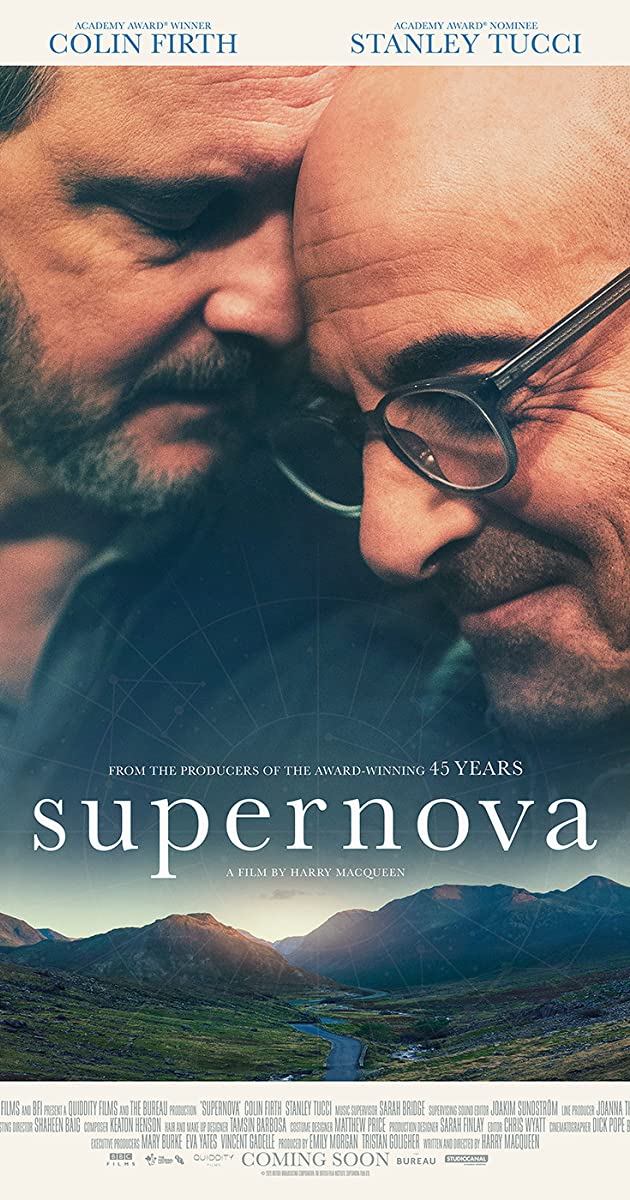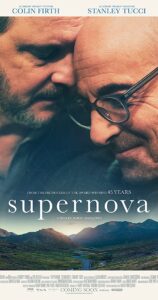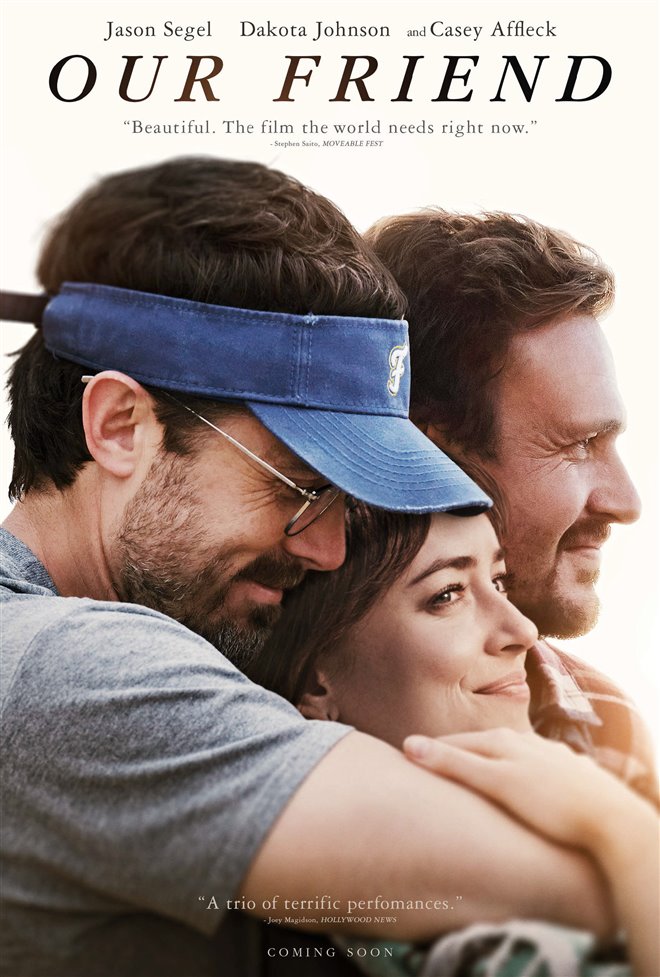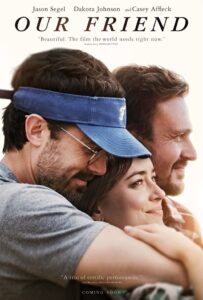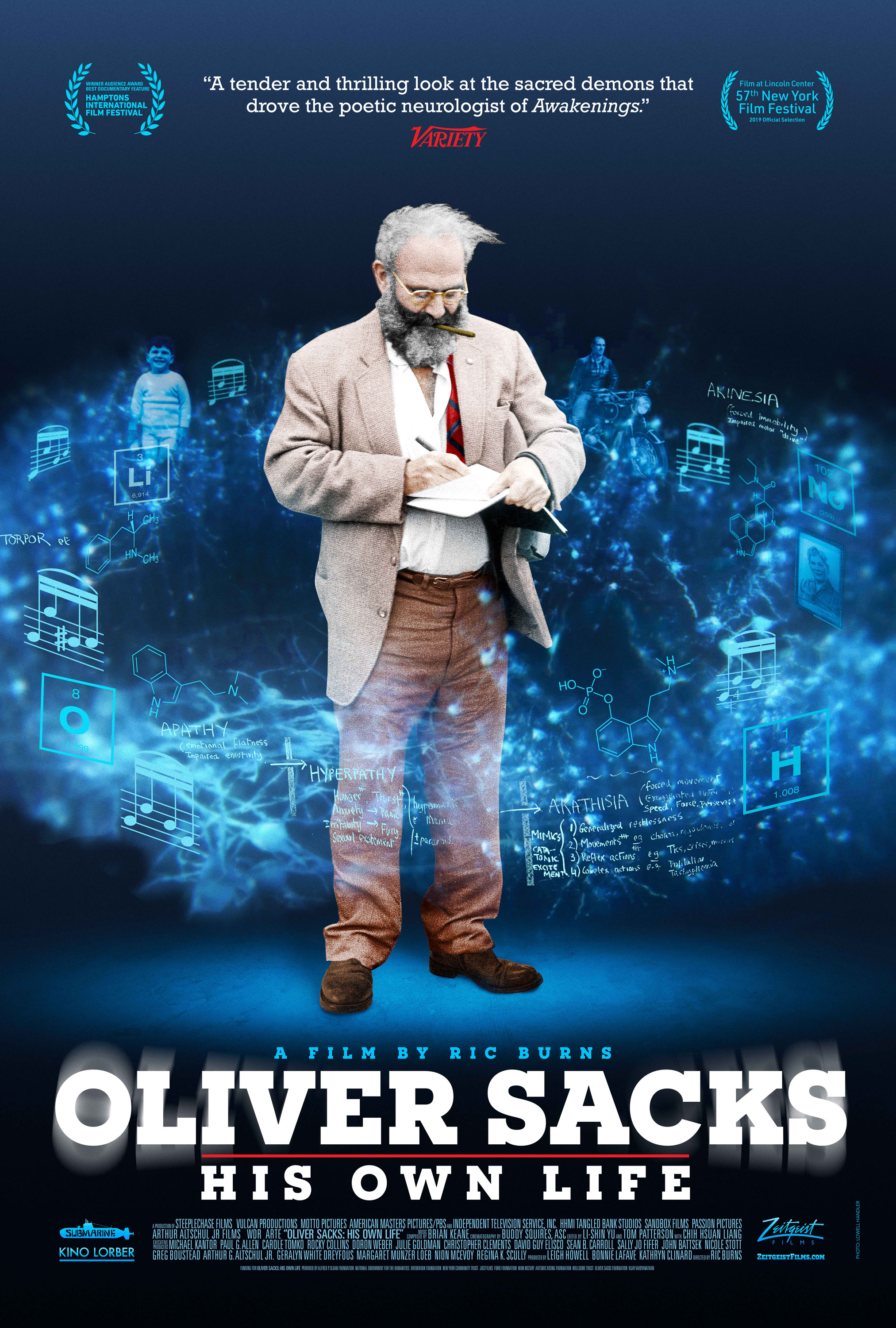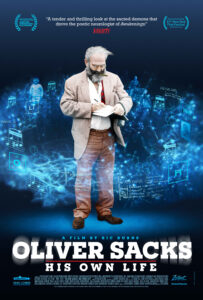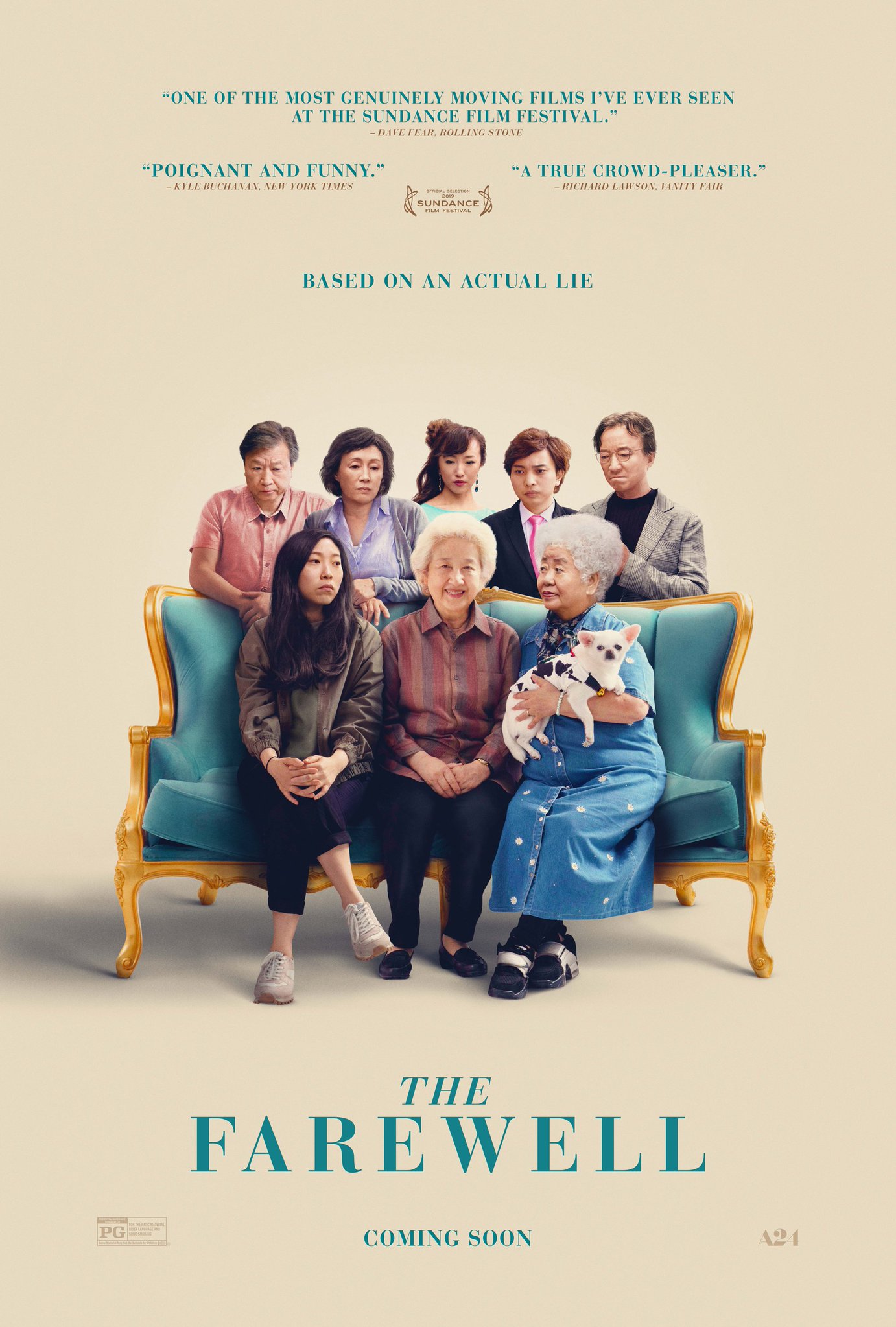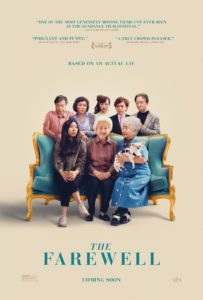Spoiler Alert
Posted on December 8, 2022 at 5:06 pm
B +| Lowest Recommended Age: | Mature High Schooler |
| MPAA Rating: | Rated R for drug use, thematic elements, and sexual content |
| Profanity: | Strong language |
| Alcohol/ Drugs: | Alcohol and marijuana |
| Violence/ Scariness: | Illness and sad death |
| Diversity Issues: | A theme of the movie |
| Date Released to Theaters: | December 9, 2022 |

Jim Parsons plays Ausiello, a man whose deep attachment to television — and to one show in particular I will not spoil — stems from and perpetuates a tendency to be introverted and self-conscious in his interactions with others, especially possible romantic partners. He calls himself an “FFK,” “former fat kid,” so he is insecure about his body.
Kit (Ben Aldridge) is handsome, confident, and outgoing. He has never considered making a commitment to any kind of romantic or intimate relationship. Both of them are surprised and scared to find themselves caring about each other. Michael is the one who confesses he has always dreamed of someone to lie under the Christmas tree with him, year after year.
They move in together. They lie under the Christmas tree. But they have some problems. Michael worries that Kit is cheating on him with a handsome co-worker. Kit gets impatient. Each of them is irritated with the very changes they introduced each other to. Michael, a non-drinker when they met, is now getting quietly snockered in the evenings. Kit, who didn’t watch much television when they met, is watching too much, even for Kit. Both, of course, are about distancing themselves from having real conversations.
Kit moves out, but they remain close. And then, after one more Christmas celebration, Kit tells Michael he is experiencing pain. Michael goes with him to the doctor and they have the conversation everyone dreads, the one that begins with, “I’m afraid the news is not what we had hoped.”
The movie balances our expectations for a movie love story with specifics about the perspective of these gay men and their friends in the capable hands of director Michael Showalter, who gave us a similar, fact-based story in “The Big Sick.” The title itself makes it clear that this one will not have a happily ever after ending. But it has some wise insights about the connections based on going through the direst circumstances together. Intimacy is terrifying, but in the reflected light of the even bigger terror of loss, we can achieve some clarity about risking all of the pain to face it together, to help each other through the worst.
Parsons leaves behind his iconic role in “the Big Bang Theory” to give us the tender-hearted Ausiello, who has to learn to make real-life connections beyond his attachment to his television “friends.” And Aldridge is endearing as Kit allows himself to be vulnerable. Over the closing credits we see a brief video of the real Kit, a scene re-created for the film. With the book and the movie, Michael has made a lovely tribute to Kit, to love, to being human, and to sharing our stories.
Parents should know that this movie has strong language, sexual references and situations, drinking, marijuana, and terminal cancer.
Family discussion: What pushed Kit and Michael apart and what brought them back together? What do we learn from the reaction of Kit’s parents?
If you like this, try: the book, Spoiler Alert: The Hero Dies, and Ausiello’s Instagram account for Kit’s photographs


